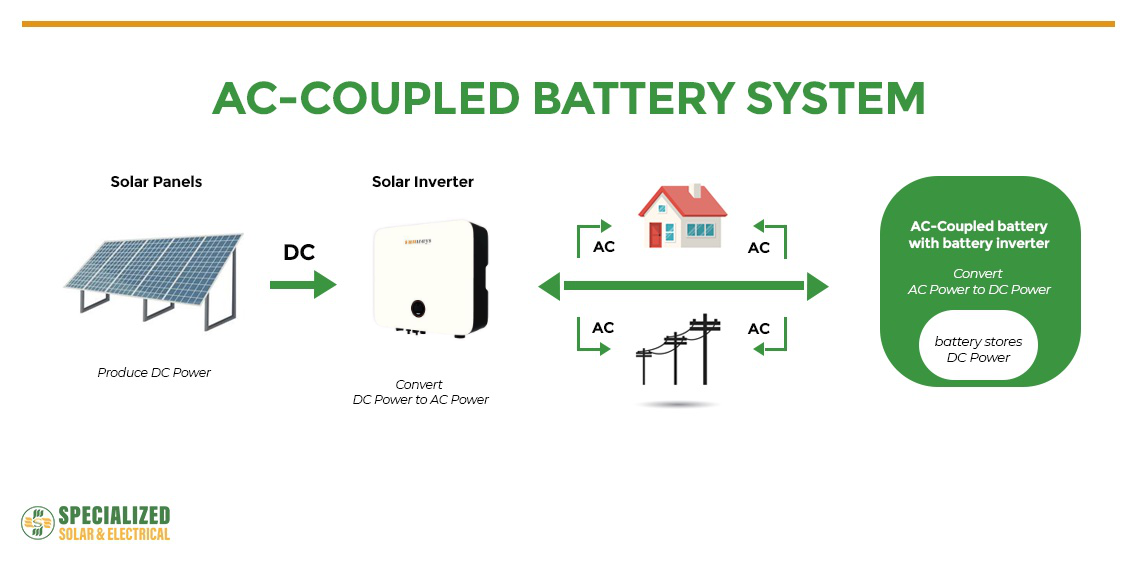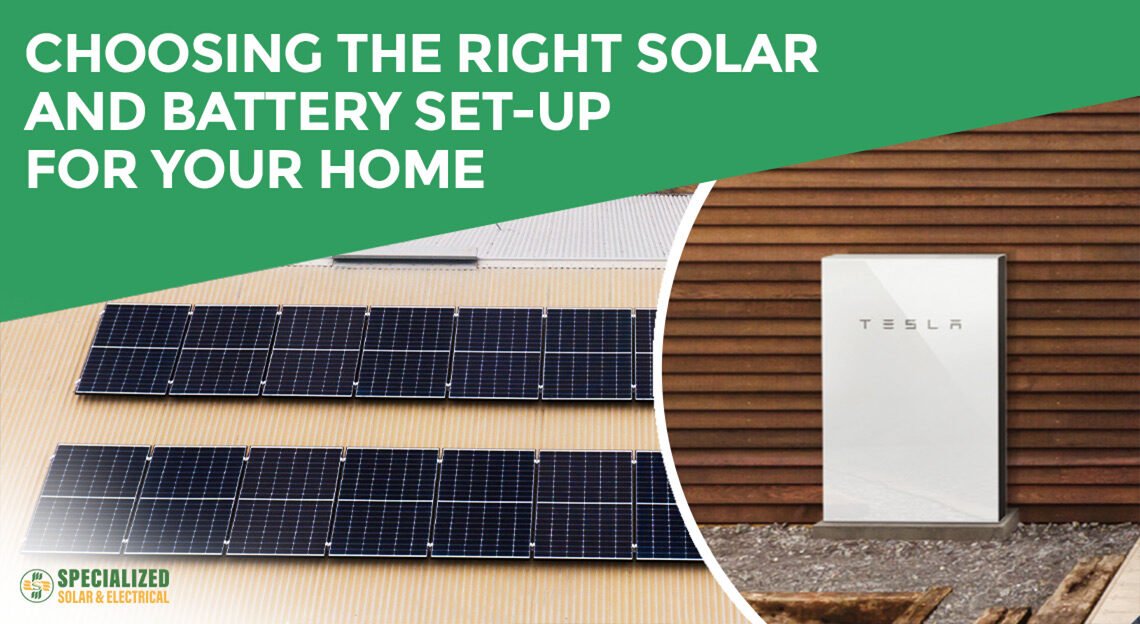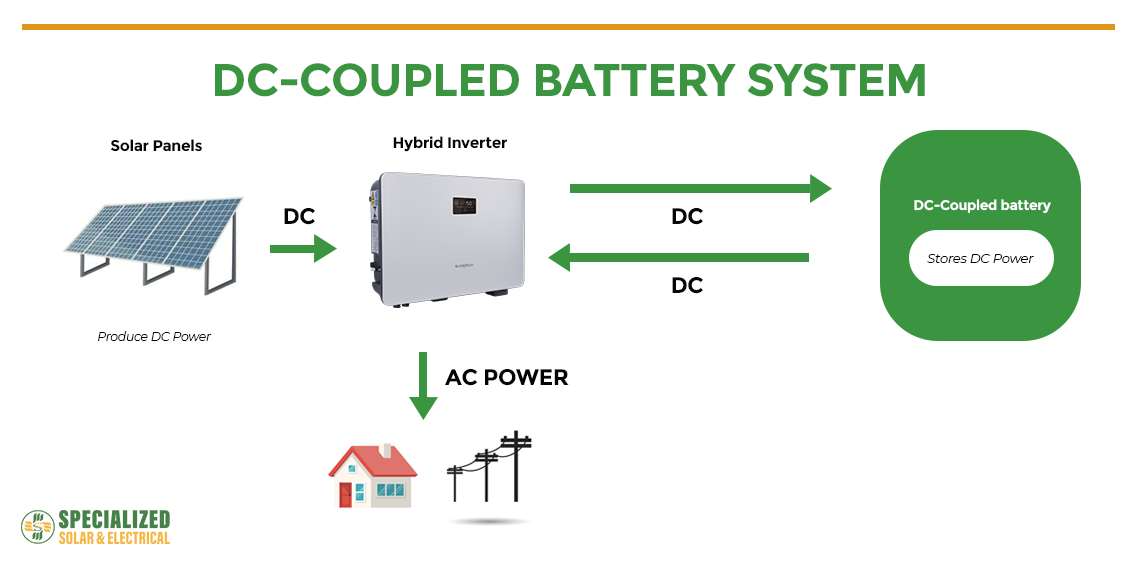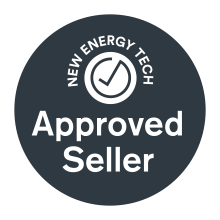If you’re shopping around for solar battery storage, chances are you’ve come across the terms AC-coupled and DC-coupled batteries. To the layperson, these terms can be confusing. However, knowing what they mean is important if you want to be sure you’re getting the right battery for your home.
In this blog:
- What is AC and DC electricity
- How does an AC-coupled battery storage work?
- How does an DC-coupled battery storage work?
- Examples of AC and DC-coupled batteries
- Pros and Cons: AC and DC-coupled batteries
What is AC and DC electricity
The electricity produced by solar panels is direct current electricity, called DC electricity. DC refers to the fact that the current flows in just one direction. It is high voltage electricity; at around 600V. DC electricity is also the type of electricity stored in solar batteries.
Alternating current (AC) electricity is the type of electricity that’s used by appliances in the home and by the electricity grid. It is much lower voltage at around 240V. Alternating current refers to the fact that the current flows rapidly forwards and backwards.
For DC electricity to be useful in the home – or sent to the grid – it must first be converted to AC electricity. This is the purpose of an inverter; to convert electricity from DC to AC.
The same is true for electricity stored in a solar battery. When the DC power in a battery needs to be used in the home – or sent to the grid – it must first be converted to AC power by an inverter.
| AC electricity | DC electricity |
|---|---|
| Used by home appliances | Produced by solar panels |
| Used by the electricity grid | Stored in solar batteries |
What does AC-coupled and DC-coupled mean?
AC-coupled batteries
An AC-coupled battery means that the battery is coupled to a solar inverter which sends AC power to the battery. So, before AC electricity from the solar inverter can be stored in the battery, it must first be converted to DC electricity.
The AC-to-DC conversion process is handled by an inverter that’s built into an AC-coupled battery; this is called a battery inverter.
You don’t see the battery inverter in an AC-coupled battery as it’s enclosed in the same unit as the battery – but it’s there!
This is the reason why an AC-coupled solar battery storage system has two inverters: the solar inverter (which you can see) and the battery inverter (which is built-in so you can’t see it).
DC-coupled batteries
A DC-coupled battery receives power from a hybrid inverter. A hybrid inverter serves the dual purpose of:
- Sending DC power to the battery; and
- Converting DC power from solar panels and the battery into AC power for the home and grid
Because the hybrid inverter sends DC power to the battery, a DC-coupled battery does not need its own battery inverter. That’s why a DC-coupled solar battery storage system only has one inverter – the hybrid inverter.
How does an AC-coupled battery storage work?
With an AC-coupled battery system, there are three power conversion processes. Each time there is a power conversion there is a corresponding loss of power. This is an inherent drawback with AC-coupled battery systems as they lose more power in the conversion process so there’s less power for your home.
Most AC-coupled solar battery systems have an efficiency of around 90 per cent.

How does an DC-coupled battery storage work?
With a DC-coupled solar battery storage system, there is only one power conversion process. DC-coupled battery systems therefore lose less power in the conversion process; that’s why they are more efficient than AC-coupled systems.
DC-coupled solar battery systems generally have an efficiency of around 94 to 95 per cent.
Examples of AC and DC-coupled batteries
Because AC-coupled and DC-coupled battery systems have their pros and cons, it may be that your home or business is better suited to a DC-coupled battery than an AC-coupled battery – or vice versa. This will depend on where you live (and your network distributor’s rules), whether you have an existing solar panel system, your budget, your longer-term plans with regards to how you want to use power in your home and other factors.
For this reason, at Specialized Solar & Electrical we offer three of the best solar battery systems in the market – two of them are DC-coupled batteries, and one is an AC-coupled battery.
Battery storage systems provided by Specialized Solar
| AC or DC-coupled | Battery brand | Any other inverter required? |
|---|---|---|
| AC-coupled battery | Tesla Powerwall 2 | No. Can be added to almost any existing solar panel system. |
| DC-coupled battery | Sungrow | Yes. Requires a Sungrow hybrid inverter. |
| DC-coupled battery | SolarEdge Home Battery | Yes. Requires a SolarEdge Energy Hub Inverter. |
A major advantage of the Tesla Powerwall 2 is that it can be retrofitted to almost any existing solar panel system. So, if you already have at least 5-6kW of solar panels on your roof, adding a Powerwall battery may be the best – and simplest – solution for your home.
If, however you don’t have a solar panels system yet, a DC-coupled battery system may be the right choice. That’s because only one (hybrid) inverter is required, lowering costs, and providing greater power conversion efficiencies. This means more power for your home or business – and a faster payback.
Pros and Cons: AC and DC-coupled batteries
There are pros and cons for both AC and DC-coupled batteries. Depending on your home and requirements, it’s likely that either an AC-coupled or DC-coupled battery will be better suited to your needs.
AC versus DC-coupled batteries: Pros and cons
| AC-coupled battery | DC-coupled battery |
|---|---|
| Good for retrofits, i.e., adding a battery to an existing solar panel system | Good for new solar+storage systems |
Two separate inverters required:
|
One inverter required: 1. hybrid inverter which does the job of both a solar inverter and a battery inverter |
| More components = more cost | Less components = lower cost |
| Simple to install | May take longer to install |
| May not be possible to install an AC-coupled battery due to local network distributor size limits (if they count battery inverter size towards total allowed system size).
If this happens, you may need a DC-coupled battery instead. |
Avoids network distributor size limits (because battery inverter is part of hybrid inverter). |
| Oversize solar panels by 133% compared to the solar inverter capacity.
Less scope to increase the size of your solar panel system. Less solar panels can mean longer total system payback. |
Oversize solar panels by up to 200% compared to hybrid inverter capacity
More scope to increase the size of your solar panel system. More solar panels can mean faster total system payback. |
| Less efficient (because three power conversions are required) | More efficient (because only one power conversion is required). |
Get the right solar and battery set-up for your home
For expert advice on the most suitable battery set-up for your home get in touch with us today.
We work across the whole of Victoria and NSW and know all the rules and restrictions relating to batteries for each network distributor area. We’ll be able to tell you what’s allowed in your area and for your specific property.
Then, we’ll review your current electricity usage, your solar set-up (if you already have a system) and discuss with you what plans you have for the future that may be relevant when choosing the right battery system for your home. Based on all this information, we’ll provide a fully documented quotation showing system costs, any rebates you may be eligible for, projected electricity bill savings and payback.
We’re fully accredited by the Clean Energy Council as a Solar Retailer, Solar Installer and Battery Installer so we’ve got all the expertise in-house to ensure you get the best solution for your home and budget.
We look forward to helping you make the next step towards greater energy self-sufficiency and lower power bills.













